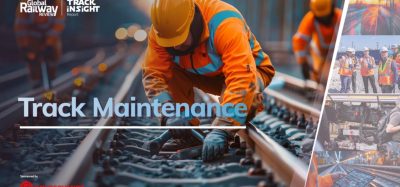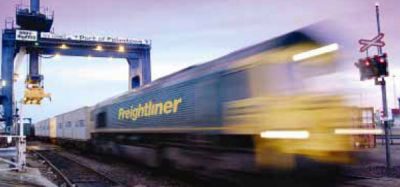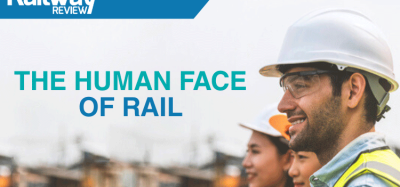The people behind the wheel: Jorge Maroto’s story, Metro de Sevilla
Posted: 25 September 2024 | Jorge Maroto - Metro de Sevilla | No comments yet
In the latest instalment of Global Railway Review’s ‘The people behind the wheel’ series, Jorge Maroto, Managing Director of Metro de Sevilla, discusses his leadership role, the challenges of modernising urban transport, and his commitment to sustainability and innovation in shaping the future of rail.
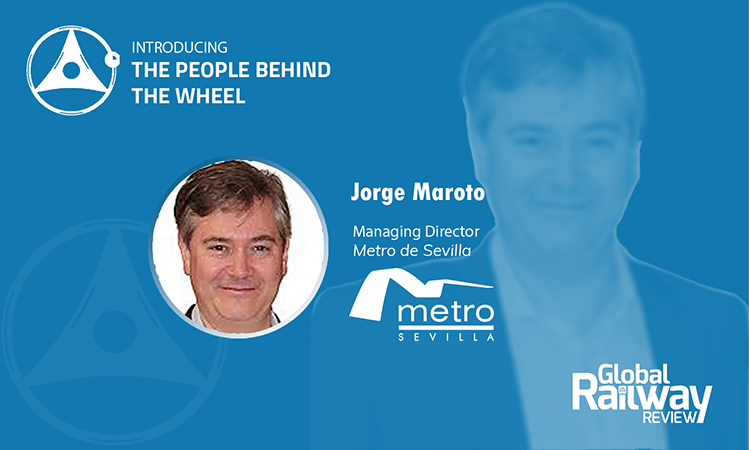

Can you tell us a bit about your role at Metro de Sevilla?
At Metro de Sevilla, we are committed to delivering safe, accessible and easy-to-use services”
Metro de Sevilla is a Concession of the Andalusian Regional Government and is part of the Globalvia Group. As Managing Director of Metro de Sevilla, my primary responsibility is to lead our team in creating value for customers, shareholders and society. I ensure that day-to-day operations run smoothly, providing reliable and efficient services that meet the needs of Seville’s residents and visitors.
Metro de Sevilla is more than just a transportation provider; it plays a key role in the city’s infrastructure, contributing to urban mobility while promoting sustainability and reducing carbon emissions.
A key aspect of my role is leading a skilled, customer-focused team. We are committed to delivering safe, accessible and easy-to-use services. As public transport continues to evolve, we aim to be at the forefront of innovation and sustainability, constantly looking for ways to optimise our operations through digitalisation, automation and data-driven decision-making.
What inspired you to seek a career in the transport industry?
From a young age, I was captivated by the rail industry due to my father’s dedication and passion for railways, which heavily influenced my own aspirations”
My inspiration to pursue a career in the transport industry, particularly in rail, has deep personal roots. My family has been connected to the rail industry for over a century: my great-grandfather, my grandfather and his siblings, as well as several of my uncles and aunts, including my father, all worked in the sector. From a young age, I was captivated by the rail industry due to my father’s dedication and passion for railways, which heavily influenced my own aspirations.
As I grew older, this early exposure evolved into a genuine passion for engineering and problem-solving within the rail sector. I was drawn to the industry because of its complexity and the crucial role it plays in shaping urban and regional mobility. The co-ordination between mechanical systems, electrical components and human factors presents a unique set of challenges, which I was eager to tackle as an engineer.
During my university years, while studying Industrial Engineering, I became increasingly fascinated by how rail systems contribute to sustainable urban development – reducing congestion, cutting emissions and offering reliable alternatives to personal vehicles. The knowledge that my work could have a meaningful and positive impact on society was a key factor in my decision to specialise in rail.
Additionally, the constant innovation in the rail industry has kept me motivated. The dynamic and evolving landscape within mobility aligns perfectly with my engineering interests and continues to inspire me as I progress in my career.
Have you experienced any challenges in your role and, if yes, how have you overcome them?
Today’s users demand not only reliable service but also sustainability, digital connectivity and real-time information”
Challenges are part of leading any organisation, and I believe that they offer valuable opportunities for improvement. Throughout my career, I have faced significant challenges, such as working on the very first high-speed rail projects of each of Spain’s two main rail manufacturers. Later, I led a deep transformation at “Tranvía de Parla” with Globalvia, ensuring that it met the needs of all stakeholders
At Metro de Sevilla, one of the main challenges has been adapting to the growing expectations of passengers while maintaining efficient operations. Today’s users demand not only reliable service but also sustainability, digital connectivity and real-time information.
Another major challenge was transforming our ticketing system into a smooth, seamless experience by eliminating the need for physical tickets. Integrating EMV ticketing and later our Account-Based-Ticketing System required imagination, boldness and technological upgrades. This involved co-ordination across various teams, managing interfaces and driving a cultural shift within the organisation. Globalvia embrace innovation, fostering a mindset of continuous learning.
Another challenge has been improving sustainability in our operations. We’ve adopted a phased approach, focusing on energy-efficient systems and ensuring each investment aligns with both sustainability and financial goals.
Adaptability, teamwork and open communication with stakeholders have been key to overcoming these challenges and ensuring the success of Metro de Sevilla.
Has a career in rail changed your perception of the industry as a whole?
Realising its potential to help society meet environmental targets has made me even more passionate about driving innovation in this area”
My career in rail has profoundly shaped my understanding of the industry. When I entered this sector, I primarily viewed railways as a complex system designed to transport people quickly and comfortably, and my interest was mostly technical. However, as I became more involved in the operational and strategic aspects, I realised how multi-faceted and complex the industry truly is.
First, I developed a deeper appreciation for the critical role rail plays in sustainability and mobility. Rail is one of the most energy-efficient modes of public transport, actively reducing carbon footprints while promoting sustainable urban growth. Realising its potential to help society meet environmental targets has made me even more passionate about driving innovation in this area.
Second, I came to understand the intricate co-ordination required to operate a rail service smoothly. The interaction between technology, rolling stock, infrastructure, legal frameworks and human factors demands constant attention. This is particularly true in the face of external pressures, such as economic shifts, regulatory changes and evolving customer expectations.
Lastly, working within a Concession has highlighted the importance of resilience and long-term planning. Railways are built for decades, meaning decisions today must anticipate future customer needs. This perspective has shifted my approach to challenges, emphasising the need for flexibility, adaptability and innovation to keep rail systems relevant and effective for the long term.
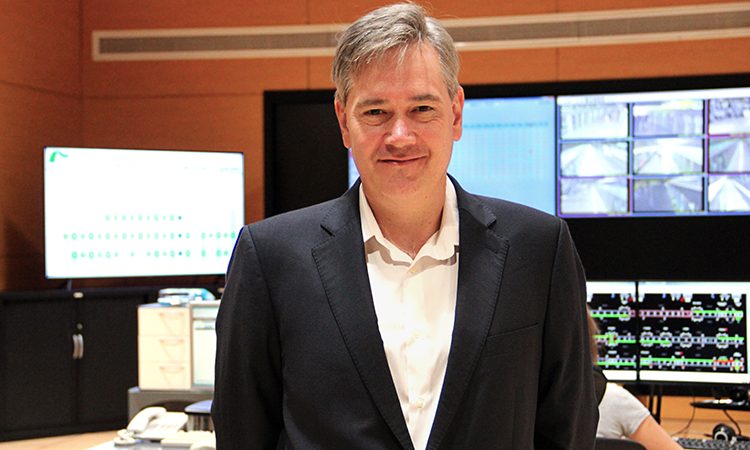

What would be the top three highlights of your career in the industry to date?
Throughout my career in the rail industry, I have had the privilege of taking part in several transformative projects.
One highlight is my work with Metro de Sevilla. Leading the team to make Metro de Sevilla a benchmark for modern urban mobility in Spain has been deeply rewarding. We have focused on improving operational efficiency, enhancing sustainability, and fostering a customer-centric approach. Witnessing the positive impact this has had on the community has been a significant achievement, and I am very proud of the team’s efforts.
Another highlight is my time at CAF Group, where I led the team responsible for maintaining its very first high-speed train and establishing the joint venture with Renfe, ACTREN. This period involved groundbreaking rail projects, ensuring optimal performance for some of the world’s most advanced trains. This experience provided valuable insights into cutting-edge rail technology and reinforced my belief in the importance of innovation within the industry.
Finally, I would highlight the success of the deep transformation of “Tranvía de Parla” within the Globalvia Group. As Managing Director, I led the implementation of significant changes that improved efficiency and set the project on a path toward operational excellence. This transformation was a major challenge, but the successful turnaround was a remarkable achievement.
What key pieces of advice would you give to someone who is interested in a career in rail?
For those interested in a career in the rail industry, there are several key pieces of advice I would offer.
Always stay curious and committed to continuous learning”
Firstly, always stay curious and committed to continuous learning. The rail industry is constantly evolving with new technologies shaping its future. It is crucial to keep up-to-date with these advancements and seek ways to apply new technologies to improve our rail services. This advice applies not only to engineers but to anyone involved in operations, planning, or customer service. The industry values professionals who are forward-thinking and adaptable to change.
Secondly, recognise the importance of collaboration and the work done by others. Rail systems are highly integrated and require co-ordination across various disciplines, including engineering, urban planning, government policy and customer relations. Working effectively within multidisciplinary teams is essential for success in this sector.
Lastly, keep sustainability in all aspects of your work. The future of mobility is moving towards more sustainable and carbon-neutral solutions. Whether you are involved in operations, design, or management, focusing on sustainability will not only enhance your career but also align your work with broader environmental goals.
By staying adaptable, committed to learning and focused on sustainability, anyone entering the rail industry today can build a meaningful, rewarding and impactful career.
How do you see innovation shaping your role and the rail industry in the next five years?
Innovation already plays a pivotal role in shaping both my role and the rail industry, and I think it will become even more crucial in the near future. The pace of technological change is accelerating, and the rail sector is increasingly adopting solutions that will revolutionise everything from operations to customer experience.
In my role, I will focus on leading the transformation and integrating data-driven tools to enhance operational efficiency. A significant shift toward a predictive maintenance model, powered by real-time information and artificial intelligence, will significantly reduce downtime and improve asset availability. By analysing data from our assets, we can address issues at the most appropriate time, enhancing service quality, boosting team productivity and extending asset lifespan.
In the coming years, I also anticipate a greater shift towards digital ticketing and Account-Based Ticketing systems, like those developed by Globalvia, as well as improved integration across different operators’ back-office solutions. These systems will provide passengers a seamless experience and allow us to collect more data on travel patterns, which will inform decision-making and optimise scheduling.
Moreover, innovation will drive further sustainability efforts. While rail is already one of the most sustainable modes of transport, there is still room for improvement. Over the next five years, I expect to see increased efficiency and a greater use of renewable energy sources, to power rail networks, as seen in Metro de Sevilla and Globalvia. This will help further reduce the sector’s carbon footprint and align with global sustainability goals.


Related topics
High-Speed Rail, Sustainability/Decarbonisation, The People Behind the Wheel, The Workforce




